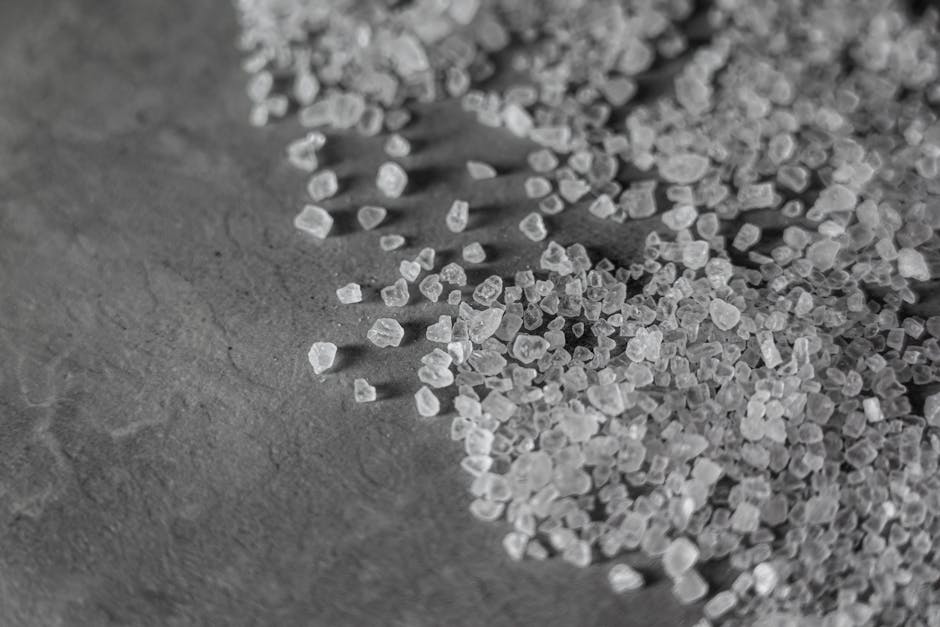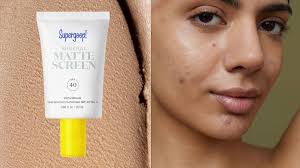Get Your AI Analysis
Personalized skincare insights
Discover your perfect skincare routine with our AI-powered analysis. Get personalized recommendations for glowing, healthy skin.
Start AnalysisFollow Us
Stay updated with the latest skincare tips, trends, and expert advice.
Sunscreen for Sensitive Skin: Your Gentle Formula Guide
As a skincare veteran with over a decade in the industry, I've witnessed countless innovations, but one truth remains constant: sunscreen is the single most important step in any skincare routine. For those of us navigating the complex world of sensitive skin, however, finding a sunscreen that protects without provoking can feel like searching for a unicorn. Stinging, redness, breakouts, and discomfort – these are common complaints when reactive skin meets the wrong SPF.
Today, we're diving deep into the art and science of selecting gentle sunscreens that not only provide impeccable sun protection but also calm, soothe, and respect your skin's delicate balance. Forget the days of sacrificing comfort for coverage. We'll explore hypoallergenic, dermatologist-tested formulas, delve into mineral-only filters, understand soothing botanical blends, and uncover fragrance-free gems designed to prevent those dreaded flare-ups. Get ready to embrace the sun safely and comfortably!

Understanding Sensitive Skin: Why the Special Treatment?
Before we jump into product recommendations, it's crucial to understand why sensitive skin reacts the way it does. Sensitive skin is often characterized by a compromised skin barrier, making it more permeable and susceptible to irritants. This can manifest as redness, itching, burning, stinging, dryness, or even breakouts when exposed to certain ingredients, environmental factors, or even physical touch.
According to a study published in the Journal of Clinical and Aesthetic Dermatology, approximately 50% of women and 40% of men report having sensitive skin. This isn't just a niche concern; it's a widespread challenge that demands careful product selection. For sensitive skin, a sunscreen isn't just about UV filters; it's about the entire formulation – every single ingredient matters.
The Sunscreen Dilemma: Common Irritants to Avoid
Many conventional sunscreens, while effective for others, contain ingredients that can wreak havoc on sensitive complexions. The usual suspects include:
Fragrance: Both synthetic and natural fragrances are a leading cause of contact dermatitis and irritation.
Alcohol (Ethanol/Denatured Alcohol): Can be incredibly drying and strip the skin's natural protective oils, leading to further barrier compromise.
Harsh Chemical UV Filters: Ingredients like Oxybenzone, Octinoxate, and Octisalate can be absorbed into the skin, potentially causing irritation or allergic reactions in sensitive individuals.
Certain Preservatives: Methylisothiazolinone (MI) and Methylchloroisothiazolinone (MCI) are notorious for causing sensitization.
Essential Oils: While natural, many essential oils (e.g., lavender, tea tree, citrus oils) are potent allergens and irritants for reactive skin.
Expert Insight: The Golden Rule
"For sensitive skin, the golden rule of sunscreen is 'less is more' when it comes to the ingredient list. The fewer potential irritants, the better. Always prioritize fragrance-free, broad-spectrum formulas with minimal chemical filters or, ideally, purely mineral filters."
— Dr. Lena Hansen, Board-Certified Dermatologist
Mineral vs. Chemical Sunscreens: A Deep Dive for Sensitive Skin
The core of the sunscreen discussion for sensitive skin often boils down to the type of UV filters used. There are two main categories:
1. Mineral (Physical) Sunscreens

These sunscreens use naturally occurring minerals – Zinc Oxide and Titanium Dioxide – to create a physical barrier on the skin's surface. They work by reflecting and scattering UV radiation away from the skin, like tiny mirrors. They are considered broad-spectrum, protecting against both UVA and UVB rays.
Why they're great for sensitive skin:
Less Irritating: They sit on top of the skin rather than being absorbed, making them far less likely to cause irritation or allergic reactions.
Gentle: Dermatologists widely recommend them for babies, children, and adults with highly reactive skin conditions like rosacea or eczema.
Immediate Protection: They offer immediate protection upon application, unlike chemical sunscreens which need about 20 minutes to become effective.
Broad Spectrum: Both Zinc Oxide and Titanium Dioxide provide excellent broad-spectrum protection. Zinc Oxide, in particular, is superior in its UVA protection.
The 'White Cast' Challenge: Historically, mineral sunscreens were known for leaving a noticeable white cast. However, advancements in micronized and nano-particle technology have significantly reduced this issue, with many modern formulas blending seamlessly, especially tinted versions.
2. Chemical (Organic) Sunscreens
Chemical sunscreens typically contain active ingredients like Oxybenzone, Avobenzone, Octinoxate, Octisalate, Homosalate, and Octocrylene. These filters absorb UV radiation, convert it into heat, and release it from the skin.
Why they're generally less ideal for sensitive skin:
Absorption: They are absorbed into the skin, increasing the potential for irritation or allergic reactions.
Heat Release: The process of converting UV light to heat can sometimes cause a warming sensation, which can be uncomfortable for highly reactive skin types, particularly those with rosacea.
Potential for Sensitization: Some individuals can develop contact dermatitis to specific chemical filters.
It's worth noting that newer generation chemical filters, particularly those available in Europe and Asia (e.g., Tinosorb, Mexoryl), are often more stable and less irritating than older US-approved filters. Unfortunately, many of these are not yet FDA-approved for sale in the US.
Key Ingredients to Look For in Gentle Formulas
Beyond mineral filters, look for sunscreens that are fortified with soothing and skin-strengthening ingredients:
Niacinamide (Vitamin B3): Calms inflammation, reduces redness, and helps strengthen the skin barrier.
Hyaluronic Acid: Provides lightweight, oil-free hydration without clogging pores, crucial for maintaining barrier integrity.
Ceramides: Essential lipids that help repair and maintain the skin's natural barrier.
Antioxidants: Vitamin E, Green Tea Extract, Ferulic Acid. These help neutralize free radicals generated by UV exposure, offering an additional layer of protection and soothing benefits.
Soothing Botanicals: Aloe Vera, Centella Asiatica (Cica), Allantoin, Bisabolol. These can help reduce inflammation and calm irritated skin.
Must-Have Labels to Check
When scrutinizing labels, always look for:
Broad-Spectrum SPF 30 or Higher
Water Resistant (if active)
Fragrance-Free
Hypoallergenic
Non-Comedogenic (won't clog pores)
Dermatologist-Tested
Top Gentle Sunscreen Formulations & Product Recommendations
Now for the exciting part – specific product recommendations that have earned their stripes in the sensitive skin community. Remember to always patch test a new product on a small, inconspicuous area (like behind your ear or on your inner arm) for a few days before applying it all over your face.
1. Pure Mineral Defenders (Best for highly reactive skin)

These are your safest bets, relying solely on Zinc Oxide and/or Titanium Dioxide. Modern formulations are much more elegant than their predecessors.
EltaMD UV Physical Broad-Spectrum SPF 41: A fantastic tinted option that offers pure mineral protection with antioxidants. It's oil-free, paraben-free, fragrance-free, and non-comedogenic. Perfect for those who want a subtle tint to even out skin tone.
Paula's Choice CALM Mineral Moisturizer SPF 30: This combines soothing plant extracts and antioxidants with mineral filters. It's lightweight, non-greasy, and designed specifically for redness-prone skin.
Blue Lizard Sensitive Mineral Sunscreen SPF 50+: A cult favorite, especially for body and face. It's incredibly water-resistant and contains no parabens, fragrances, or oxybenzone. Its bottle even changes color in UV light!
2. Hybrid Heroes (Gentle Chemical + Mineral for lighter feel)
Some individuals with sensitive skin can tolerate *some* chemical filters, especially newer, gentler ones, when combined with mineral filters. These often provide a lighter, less visible finish.
La Roche-Posay Anthelios Mineral Tinted Sunscreen SPF 50: While primarily mineral, some LRP Anthelios formulas might incorporate a minimal amount of a gentle chemical filter for improved texture. Always check the specific ingredients. This particular tinted mineral option is highly regarded for its texture and broad-spectrum protection.
ISDIN Eryfotona Actinica SPF 50+: This innovative formula uses Zinc Oxide with DNA repairsomes (photolyase enzyme) and vitamin E. While not strictly a 'hybrid' in the traditional sense of mixing chemical and mineral filters, it offers advanced protection and repair, making it a powerful choice for those with photodamaged or highly sensitive skin.
3. Soothing Botanical Blends (Extra TLC for reactive skin)
These sunscreens go the extra mile by incorporating ingredients known for their calming properties, ideal for skin prone to redness or irritation.
DRMTLGY Universal Tinted Moisturizer SPF 46: A mineral-based option that also offers a universal tint. It's fragrance-free and packed with hydrating ingredients, making it ideal for daily wear and sensitive skin.
Supergoop! Mineral Sheer Screen SPF 30: This 100% mineral formula feels incredibly light and features a unique blend of plant extracts that help to calm and soothe the skin, providing a sheer finish without the white cast.
Application Tips for Sensitive Skin: Your Gentle Routine
Even the gentlest sunscreen can cause issues if not applied correctly. Follow these steps for optimal protection and comfort:
Patch Test, Always: Before committing to a new sunscreen, apply a small amount to a discreet area like your jawline or behind your ear for a few days. Watch for any redness, itching, or stinging.
Cleanse Gently: Start with a mild, pH-balanced cleanser. Avoid harsh scrubbing or hot water.
Moisturize First (Optional but Recommended): If your skin is dry, apply a lightweight, fragrance-free moisturizer before sunscreen. Give it a minute to absorb.
Apply Generously: Don't skimp! The recommended amount for your face and neck is about a nickel-sized dollop. Apply in small sections, gently patting and blending rather than rubbing aggressively.
Reapply Diligently: Sunscreen needs to be reapplied every two hours, or more frequently if swimming or sweating. This is a non-negotiable step for effective sun protection.
Don't Forget Exposed Areas: Extend sunscreen to your ears, neck, chest, and the backs of your hands.
Beyond Sunscreen: Holistic Sun Protection for Delicate Skin
While an excellent sunscreen is your primary defense, it's just one piece of the puzzle. For sensitive skin, a multi-pronged approach to sun protection is vital.
Seek Shade: Especially during peak sun hours (10 AM to 4 PM). This is perhaps the most effective way to prevent UV exposure.
Wear Protective Clothing: Long-sleeved shirts, pants, and wide-brimmed hats made from UPF (Ultraviolet Protection Factor) fabric offer superior protection. A white cotton T-shirt only provides an SPF of about 5!
Sunglasses: Protect the delicate skin around your eyes and prevent sun-induced eye damage.

The Skin Cancer Foundation reports that daily use of an SPF 15 or higher sunscreen reduces the risk of melanoma by 50%. For sensitive skin, ensuring that protection comes without irritation is paramount to consistent use.
Final Thoughts from a Skincare Professional
"Navigating sunscreen options with sensitive skin requires patience and a discerning eye for ingredients. Don't be discouraged by past reactions; the market is rich with innovative, gentle formulas designed precisely for your needs. Investing in a truly skin-friendly sunscreen is investing in your long-term skin health and comfort."
— Dr. Sarah Chen, Skincare Industry Expert
Finding the perfect sunscreen for sensitive skin is a journey, not a destination. It often involves a bit of trial and error, but with the knowledge of key ingredients to embrace and avoid, and a focus on mineral-based, fragrance-free, dermatologist-tested formulas, you are well-equipped. Remember to consult with a board-certified dermatologist if you continue to experience persistent irritation or have specific skin concerns. They can offer personalized advice and conduct patch testing to identify your exact triggers.

